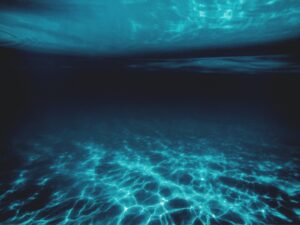Plankton will be able to store more carbon by next century, say scientists
Microscopic plankton will be able to store more carbon by the next century, according to predictions by scientists at the University of Bristol and the National Oceanography Centre (NOC).
The team based their research on the latest IPCC models and believe the plankton will be responsible for a 5% – 17% increase in carbon sequestration in the oceans by 2100.
This is achieved through a process called the ‘Biological Pump’ where microscopic plants – phytoplankton – absorb carbon and then die and sink to the deep ocean where carbon is stored for hundreds of years.

Lead author, Dr Jamie Wilson, of the University of Bristol’s School of Earth Sciences, explained: ‘The Biological Pump stores roughly double the amount of carbon dioxide that is currently in our atmosphere in the deep ocean. Because plankton are sensitive to climate change, this carbon pool is likely to change in size so we set out to understand how this would change in the future in response to climate change by looking at the latest future projections by IPCC models.’
Plankton absorb carbon dioxide through photosynthesis, then taking this carbon with them to the bottom of the ocean – the Twilight Zone – when they die.
Environmental factors, including temperature, oxygen concentration and ecological factors, like being eaten by other plankton, affect how much plankton sinks.
Researchers have discovered that warming oceans slows down this circulation, increasing the amount of time carbon is stored at the bottom.
However, IPCC models do not clearly demonstrate the environmental and ecological processes in the Twilight Zone, leading to uncertainties in how much carbon dioxide will be stored through the Biological Pump beyond the end of the century.
It’s possible storage of carbon dioxide after 2100 could slow down and instead start acting as a source of carbon dioxide to the atmosphere, further exacerbating the climate crisis.
Dr Wilson added: ‘This research demonstrates the crucial importance of the Twilight Zone region of the ocean for biologically-driven carbon storage in the ocean. This part of the ocean is still poorly understood because it is so hard to observe but it is also just now starting to come under pressures of environmental change, fishing and deep-sea mining.
‘Understanding how the Twilight Zone controls how much carbon is stored by biology in the ocean means we can figure out how to avoid the worst impacts from human practices like fishing and mining.’
The team are now looking at studying processes within the Twilight Zone which impact carbon storage and updating ocean models to reliably predict future changes.
Photo by Jonathan Borba















